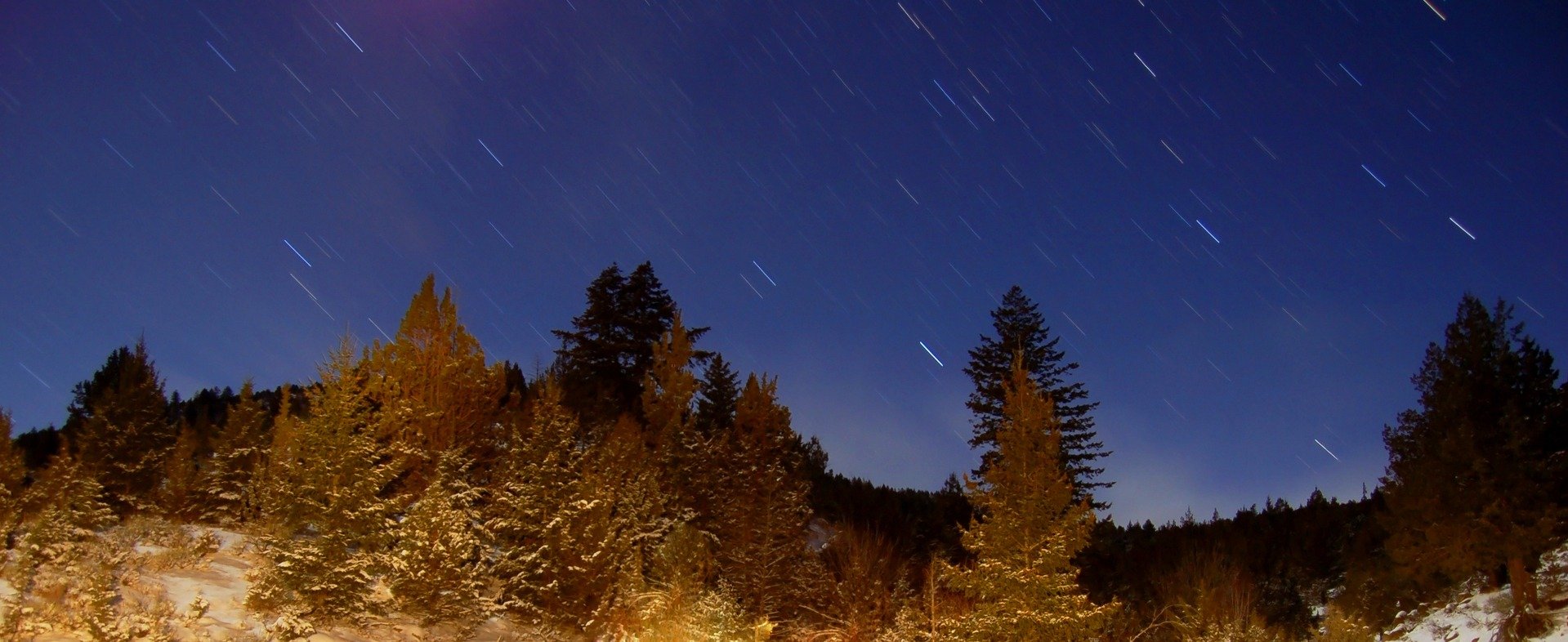Ready or not, here December comes! And with it come beautiful December meteor showers,Winter Solstice and planet sighting opportunities. You better get those warm clothes ready!
Here is December 2019 sky guide for the unaided eye observers.
Geminid Meteor Shower: December 14-15
Geminid Shower is one of the most anticipated annual meteor showers known for its generous hourly rates and bright fireballs. This year the shower will be active between December 4 and 17. But the best viewing opportunity will come in the very early morning hours of December 14 and 15 when the shower will reach its maximum. Unfortunately in December 2019 the shower will peak just two days after the Full Moon, so we will only see the brightest Geminid meteors. The expected hourly rate is 20-30 meteors. Not bad!
The radiant of the shower lies in the constellation Gemini, the Twins, near the star Castor, the second brightest star in the constellation. The Geminid meteors originate from the “Rock comet” 3200 Phaeton.
Ursid Meteor Shower: December 21-22
It is hard to compete with the spectacular Geminids, so another December meteor shower, the Ursids, is often overlooked. In 2019 this shower will be active from December 17 to 26th with a peak on the night of December 21-22. If you are planning to observe the Ursids this year, keep in mind that there will be very little meteor activity outside the maximum.
The radiant of the Ursids lies in the constellation Ursa Minor, The Little Bear, near the star Kochab. You can easily spot Kochab sitting in the bowl of the “Little Dipper”. It is the second brightest star in the constellation after the North Star. Ursid meteors originate from the comet 8P/Tuttle.
You will find more information about the parents of the Geminid and Ursid meteors in our blog December meteor showers and where they come from.
The Quadrantids: December 27-January 10
The Quadrantid Meteor Shower is often referred to as “January shower”, but it usually starts in December. This shower is quite peculiar, because it bears the name of the ancient constellation “Quadrans Muralis” that doesn’t exist anymore. That area of the sky is now part of the constellation Bootes, the Herdsman. This winter the Quadrantids will peak on January 4th. Quadrantid meteors come from the near- Earth asteroid (196256)2003 EH1.
Winter Solstice: December 22
Astronomical Winter will officially begin in the Northern Hemisphere on December 22 at 4:19AM (UK time). At that moment, known as Winter Solstice, or Midwinter, the North Pole will be the furthest away from the Sun. No surprise that the day of the Winter Solstice is the shortest day of the year in the Northern Hemisphere!
The Moon: all December 2019
Whether you are observing meteor showers, the planets or the Moon, it’s important to know the current phase of the Moon. Remember: the bigger and brighter the Moon, the more not-too-bright meteors and other faint celestial objects will be lost in its glare! Below you will find the lunar dates for your diary. Plan accordingly!
4 December – First Quarter Moon
12 December – Full Moon (sometimes called “Cold Moon”)
19 December – Last Quarter Moon
Planets
The five naked eye planets, Mercury, Venus, Mars, Jupiter and Saturn, have been known and observed since antiquity. And you can easily find them too!
Jupiter, Saturn and Venus can be seen this month in the West after the sunset. Mars and Mercury, on the other hand, can be spotted in the East before the sunrise. Be warned: Saturn and Mercury will only be visible during the first half of the month. Jupiter will disappear from view even earlier, on the second week of December 2019. So hurry up and spot these planets before they’re gone!
Further reading for the novice sky observers
- Open source planetarium software and free night sky apps for stargazers
- Why can’t we see all 88 constellations at once?
- The mystery of the North Star
- Chasing the Moon …(or why the Moon rises and sets at a different time every night)
If you have any further questions, feel free to contact our mobile space dome team. Alternatively, book our planetarium or visit one of our public family-friendly sessions for a guided tour of the night sky. Visit Wonderdome website for more details.
Happy December 2019 stargazing!

